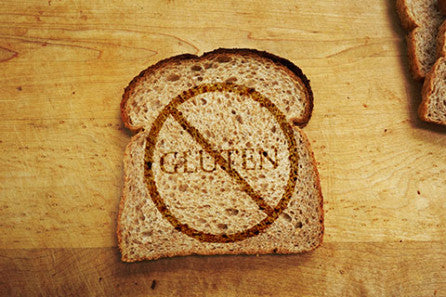My Gluten-Free Journey
6 years ago, I made the life-changing decision to remove gluten-containing foods from my diet. Part of this was the incredible influence of my CrossFit gym, but this was also in large part due to my digestive issues. At the time, I believed that whole-wheat foods were actually “healthy”. But, for some reason, my stomach didn’t agree with me. For years, I couldn’t get past the bloating and discomfort after I ate products containing wheat, rye, or barley. Ultimately, in adopting a gluten-free diet, I was worried that I would lose out on all the delicious foods like cake, pizza, donuts, and the like. However, little did I know that I would become immersed in a world that would change my life.
The “GF” Community
At the time, the gluten-free community was comprised of individuals who had Celiac disease, a serious genetic autoimmune disorder triggered by the ingestion of gluten. While I was not diagnosed with Celiac disease, I did determine that there was a direct correlation between my stomach pain and the consumption of wheat. This is now known as “
gluten sensitivity”, which can trigger similar symptoms. It was this realization that, thankfully, pushed me into the incredible world that is the natural food and beverage industry. It was here I discovered that there were some innovative companies who were dedicated to producing gluten-free foods that were also delicious.
Embracing the GF lifestyle
When I first became gluten-free, I remember feeling like an outsider – any time I would go out to eat with friends, I would be “that guy”. The one to avoid bread, pasta, dessert… even sauces. Endless teasing from my peers ensued. Yet, over the next year, my friends saw some truly significant changes in me. Everything from my physique, to my asthma, to my energy levels… heck, I only got sick once during the first 18 months I went on a GF diet. The remarkable thing – other people at my CrossFit gym also experienced similar improvements, despite not being diagnosed with Celiac disease or even gluten sensitivity. While some attributed this to overall cleaner lifestyle changes, there were other gym members who had the same workout routine for the previous 1 or 2 years, who simply switched to a gluten-free diet, and saw drastic improvements. (For more information on this phenomenon, I highly recommend the books:
Wheat Belly and
Grain Brain).
Wheat in Modern Times
When you learn more about the way that modern agriculture has drastically transformed over the last 50 years, it starts to make more sense. This is not the wheat or rye that our
grandparents ate. Contemporary wheat is very refined, which can spike your blood sugar very quickly and lead to a host of issues. Moreover, most wheat eaten today is high-yield dwarf wheat, which is a “crossbreed” of genetic manipulation, and has been known to cause a higher inflammatory response in even healthy, normal individuals.
Brave New World
Whether you believe in the deleterious effects of gluten or not, it is always a great idea to eat clean. This means a diet composed of real, whole foods that are balanced with clean proteins, natural fats, and moderate carbohydrates. Moreover, there are some delicious recipes that are ready to be enjoyed with cleaner substitutes like almond, coconut, and tapioca flour. At Rise Bar, we openly welcome anyone looking for some delicious snacks that are free of all the junk and long ingredients lists that are so common in the food world today. Thanks for reading - we’d love to hear your stories about going gluten free!









